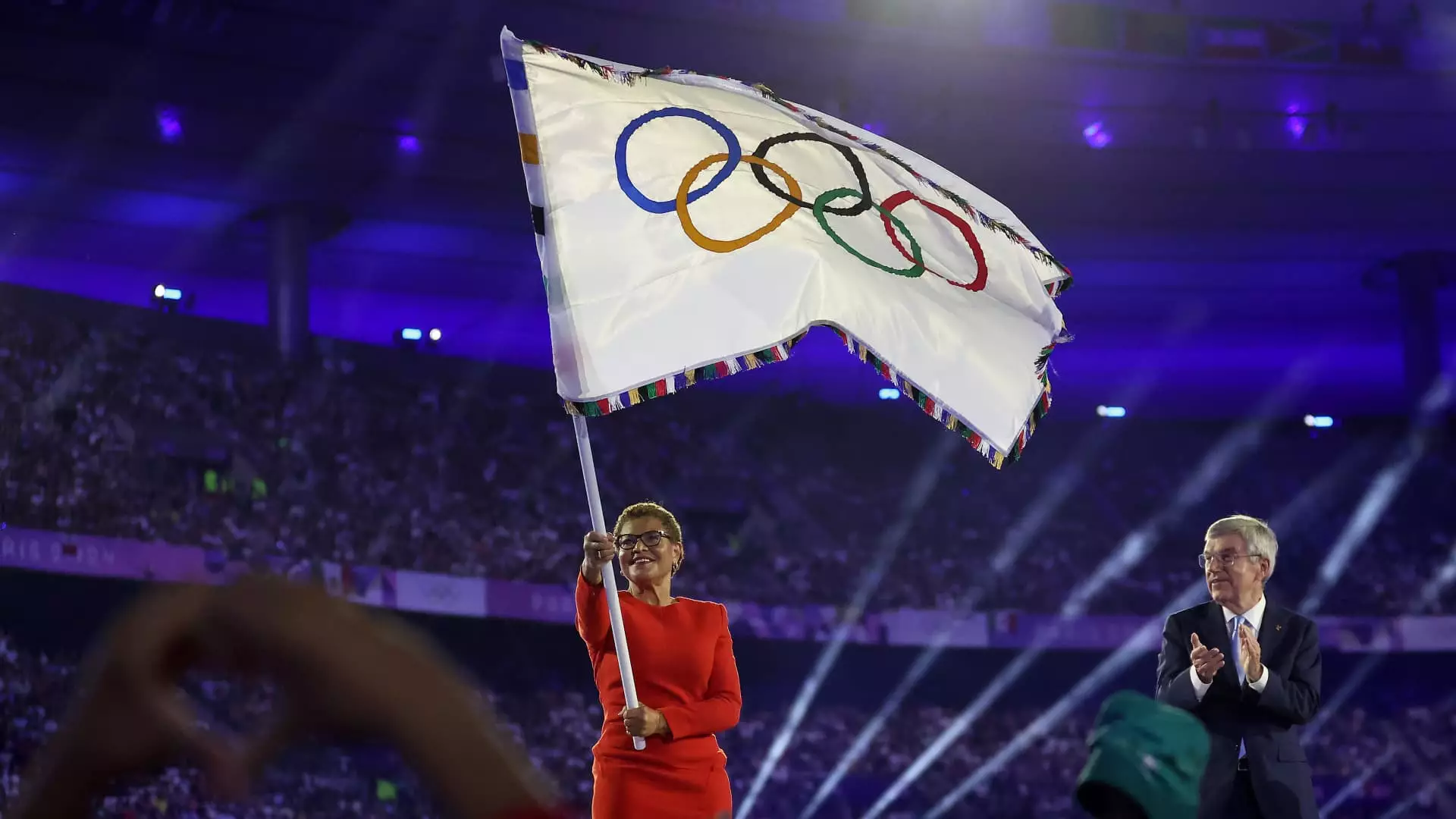Los Angeles 2028: Building a Legacy Beyond the Games

As Los Angeles gears up for the upcoming 2028 Summer Olympics and Paralympics, the excitement is palpable, particularly after witnessing the success of the recent Paris Games. However, the backdrop for this excitement is not without its apprehensions. Mayor Karen Bass recently articulated her concerns about the extensive preparations required to ensure that Los Angeles not only hosts a successful event but also leaves a lasting legacy. In her view, the task is not merely logistical, but a transformative opportunity to enhance the city’s infrastructures, such as public transportation and housing.
The Mayor’s vision extends to a bold and ambitious intention to discourage reliance on cars during the Games, signaling a potential shift in urban transport dynamics. For Bass, a significant investment in the city’s bus and subway systems is crucial, alongside partnerships with neighboring cities to facilitate effective transportation solutions. The extent of this initiative reflects a broader desire to address long-standing urban issues, particularly homelessness, with over 18,000 new housing units planned as part of this effort.
Drawing comparisons with the last Olympic Games in Los Angeles in 1984, key figures believe that the upcoming events can replicate or even surpass that success. But, they must also address criticisms of the Olympics’ impact on host cities, especially regarding infrastructure and housing. Historically, mega-events have left some legacy benefits but also increased challenges for urban areas post-Games. This time, there is a concerted effort to minimize displacement and create sustainable benefits that the city can cherish long after the closing ceremony.
Among the most significant potential improvements discussed is the reorganization of traffic flow, reminiscent of strategies employed during the 1984 Games. This includes tentative plans to adjust work hours and logistics to accommodate the influx of visitors, mitigating potential congestion and chaos.
One exciting aspect of the Los Angeles 2028 Games will be their focus on showcasing the city’s unique cultural mosaic. Jessica Alba, a prominent figure on the organizing board, emphasized the opportunity for the Games to highlight everything from Hollywood to Los Angeles’ renowned culinary scene. The aspiration is to transform the event into an inclusive exhibition of what the city has to offer—tapping into its vibrant arts, fashion, and diversity.
This cultural emphasis is crucial, not only for local pride but also for fostering a deeper bond with athletes and spectators worldwide. Alba’s remark that “LA is a main character” encapsulates the sentiment that the city should not just be a backdrop for the events but rather a pivotal part of the narrative.
Interestingly, the Los Angeles 2028 Games mark the first occasion in Olympic history where no new permanent venues will be constructed. This unconventional approach is a pragmatic response to concerns over costs and long-term maintenance. Instead, the event will utilize existing landmarks, presenting both opportunities and challenges for event planners.
The recent Olympic Torch handover ceremony, which creatively incorporated the iconic Hollywood Sign using CGI, reflects a novel approach to engaging with the city’s most recognizable symbols. However, questions remain; for instance, how to authentically embed the essence of Los Angeles into the Games while maintaining respect for its landmarks.
As plans evolve, the expectations for the Los Angeles 2028 Games are palpable. Stakeholders, including Mayor Bass and LA 2028 President Casey Wasserman, are committed to ensuring that the upcoming Olympic and Paralympic events serve as a catalyst for positive urban change and cultural celebration. The ambitious goals set by the organizers indicate a transformative vision that prioritizes sustainability, inclusivity, and legacy—key themes that may redefine how subsequent host cities approach the Olympic Games. As Los Angeles steps into this role, the world will watch closely, eager to see how the city navigates its unique challenges while celebrating its rich cultural heritage.





